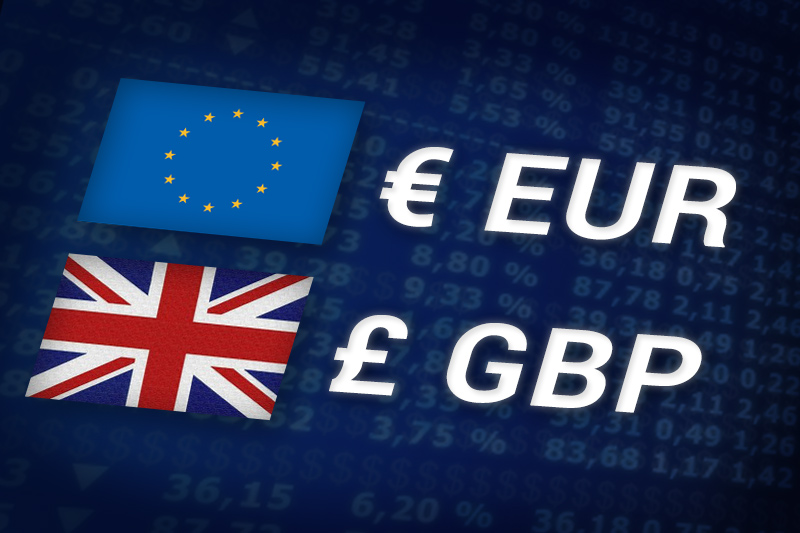Investing.com – The euro slipped to a four-day low against the pound on Wednesday, after official data showed that the U.K. goods trade deficit contracted sharply in January, recovering from its worst reading on record in December.
EUR/GBP hit 0.8565 during European late morning trade, the pair’s lowest since last Thursday; the pair subsequently consolidated at 0.8577, shedding 0.30%.
The pair was likely to find support at 0.8478, last Thursday’s low and resistance at 0.8635, Tuesday’s high and a five-week high.
The Office for National Statistics said that the country's goods trade deficit narrowed to GBP7.0 billion from an upwardly revised GBP9.6 billion in December. Economists had forecast a deficit of GBP8.5 billion pounds.
The report said the improvement was largely due to record levels of exports of oil, food, drink and tobacco. Excluding oil and volatile items, exports rose 6.1% on the month, while import volumes rose 1.9%.
The single currency was also weighed by renewed concerns over the regions sovereign debt, which lifted Portugal's yields to a new euro-era peak earlier in the day.
The euro was also lower against the U.S. dollar, with EUR/USD sliding 0.19% to hit 1.3876.
Later in the day, Portugal was expected to hold an auction of government debt, while Germany was to publish official data on industrial production.
EUR/GBP hit 0.8565 during European late morning trade, the pair’s lowest since last Thursday; the pair subsequently consolidated at 0.8577, shedding 0.30%.
The pair was likely to find support at 0.8478, last Thursday’s low and resistance at 0.8635, Tuesday’s high and a five-week high.
The Office for National Statistics said that the country's goods trade deficit narrowed to GBP7.0 billion from an upwardly revised GBP9.6 billion in December. Economists had forecast a deficit of GBP8.5 billion pounds.
The report said the improvement was largely due to record levels of exports of oil, food, drink and tobacco. Excluding oil and volatile items, exports rose 6.1% on the month, while import volumes rose 1.9%.
The single currency was also weighed by renewed concerns over the regions sovereign debt, which lifted Portugal's yields to a new euro-era peak earlier in the day.
The euro was also lower against the U.S. dollar, with EUR/USD sliding 0.19% to hit 1.3876.
Later in the day, Portugal was expected to hold an auction of government debt, while Germany was to publish official data on industrial production.
